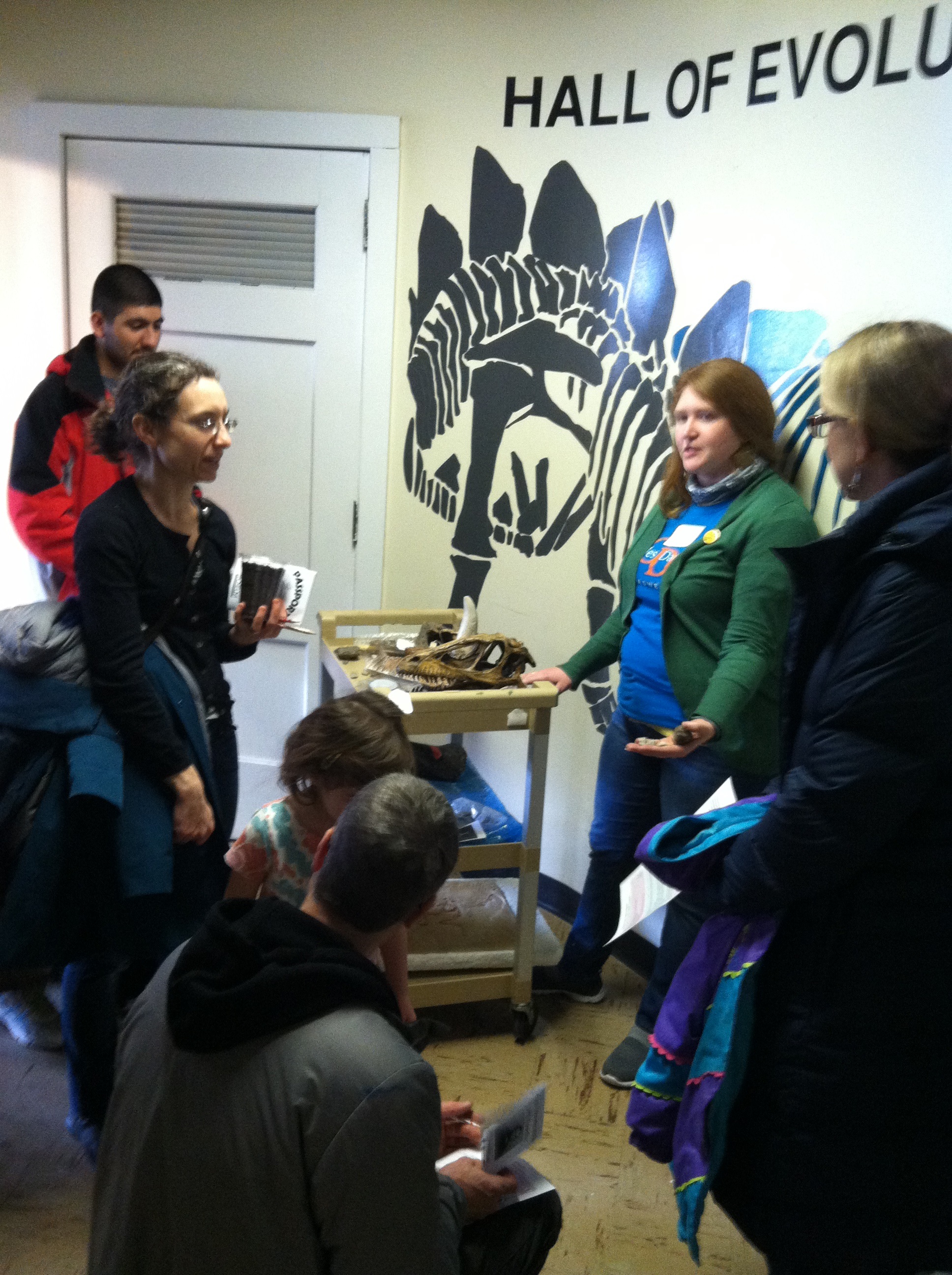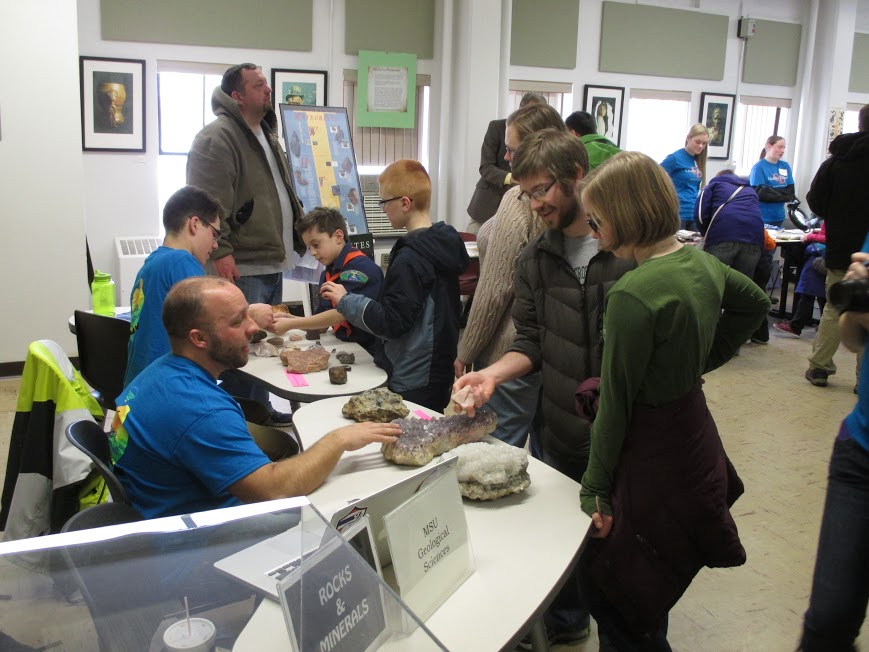Public Outreach and Education
Earth and environmental sciences are among the most accessible of scientific disciplines to the general public. Rocks, minerals, fossils, oil, gas, and other economically important earth materials; earthquakes, volcanic eruptions, landslides, drought and groundwater pollution are familiar to even casual observers of the environment in which they live. EES fields scores of requests annually from the public for identification of geological materials (rocks, minerals, fossils) and information on geological processes, especially earthquakes.

Our faculty and students have a culture of innovative outreach in K-12 classrooms, science fairs, and university-sponsored science events. The success of Darwin Discovery Days (DDD) and National Fossil Day (NFD) point to the popularity and accessibility of fossils and to the public’s thirst for authoritative information and hands-on opportunities centered on fossils, evolution, and the history of life on Earth.
Natural hazards, especially earthquakes, are another area in which EES faculty are uniquely qualified for and actively engaged in public outreach/informal science education. Our department has a long-standing association with MESTA (Michigan Earth Science Teachers Association) and IRIS (Incorporated Research Institutions for Seismology), an NSF-funded consortium of over 120 universities and laboratories nation-wide. MIQuakes, a joint venture between MESTA and IRIS in which EES faculty have participated, is a program to deploy seismographs in schools across Michigan.
Specific outreach activities with EES involvement include:
Darwin Discovery Day Get up close to reptiles, amphibians and other critters, identify artifacts such as bones and fossils, learn about Darwin's life and work, and more. Now in its third decade, DDD attracts over 800 visitors annually and relies on the volunteer efforts of over 100 MSU graduate and undergraduate students and the participation of faculty and staff from about 20 units from across campus. The event is held in February.
National Fossil Day: An afternoon of hands-on activities center on fossils at the MSU Museum, held in October in conjunction with the US Park Service's National Fossil Day.
MSU Science Festival: A week of lectures, demonstrations, hands-on activiites, held in April
Web resources:
Geolog: a web-based audio program covering topics related to Earth history, from Earth's origin 4.6 billion years ago to Pleistocene glaciation and modern day climate change.
Michigan Geology Resources
Paleoportal.org: Click on the map of the US to find out about the geologic history of each state, accompanied by photographs of fossils, organized by geologic period.
Michigan Department of Environment, Great Lakes and Energy: Many resources about Michigan geology are available from EGLE, including information on Geology in Michigan.
